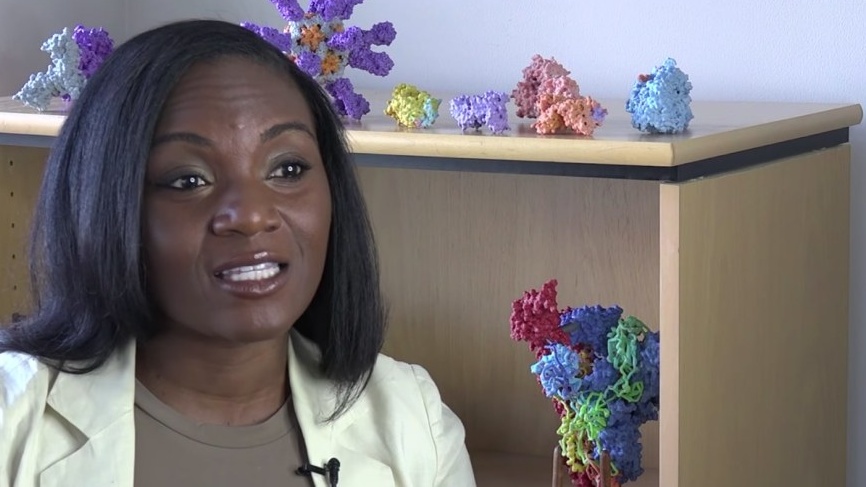A Black woman is on the front lines of finding a vaccine to the novel coronavirus.
Dr. Kizzmekia Corbett is the scientific lead of the coronavirus program of the National Institute of Allergy and Infectious Diseases (NIAID). The team of researchers started working on finding a vaccine back in January when they first learned the virus was similar to the flu, according to Because Of Them We Can.
The doctors are using the SARS vaccine as a template since COVID-19 is from the same family.
Corbett said they are using a “plug and play” strategy to change out the genetic code in order to make the vaccine fit the novel coronavirus better.
“This is the protein that is on the surface of a coronavirus and it is the protein that the virus uses to attach to the cell and then enter the cell,” she said. “If you can block the spike protein from binding to a cell, then you’ve effectively prevented an infection.”
The vaccine, created in collaboration with biotechnology company Moderna, is in its first round of human trials at Kaiser Permanente Washington Health Research Institute in Seattle. The mRNA-1273 is given to participants in two rounds, 28 days apart, reports Forbes.
The doctors are monitoring how the medicine stimulates an immune response to a protein on the virus's surface.
While this round of testing only includes 45 people who volunteered, the second round will need a much larger group. The first trial began only 66 days after the sequence of the virus was determined. Researchers then finished designing the vaccine and began manufacturing it two days later.
Our (co-inventors @McLellan_Lab) COVID-19 vaccine (spike delivered by @moderna_tx's mRNA) was just injected into the 1st human in phase 1 trial, only 66 days after viral sequence release… a testament to rapid vaccine development for emerging diseases????????https://t.co/2DLZsdirAD
— KizzyPhD (@KizzyPhD) March 16, 2020
“Finding a safe and effective vaccine to prevent infection with SARS-CoV-2 is an urgent public health priority. This Phase 1 study, launched in record speed, is an important first step toward achieving that goal,” said Anthony S. Fauci, head of the NIAID.
Corbett, a viral immunologist, said the speed in which it was created is “a testament to rapid vaccine development for emerging diseases.”
Immunizations can often take up to two years to develop, and while they may not be very helpful in the early stages of an outbreak, they can be vital later on, according to The New York Times.
Moderna is already working with the U.S. Food and Drug Administration to move on to the second trial, according to Tal Zaks, the chief medical officer for the drug discovery company, in a press release.
“This study is the first step in the clinical development of an mRNA vaccine against SARS-CoV-2, and we expect it to provide important information about safety and immunogenicity,” Zaks said.
Participants of the trial will be monitored for one year after they receive the second vaccination so researchers can collect data and ensure it is safe and effective.
